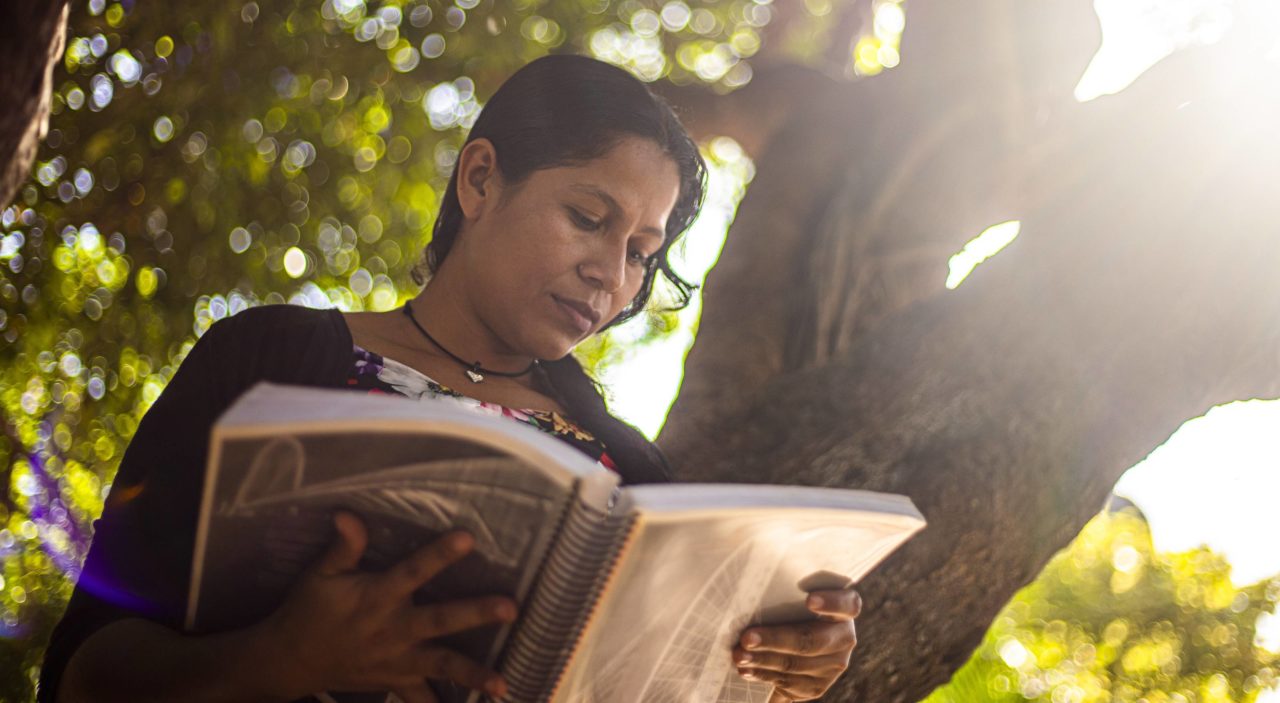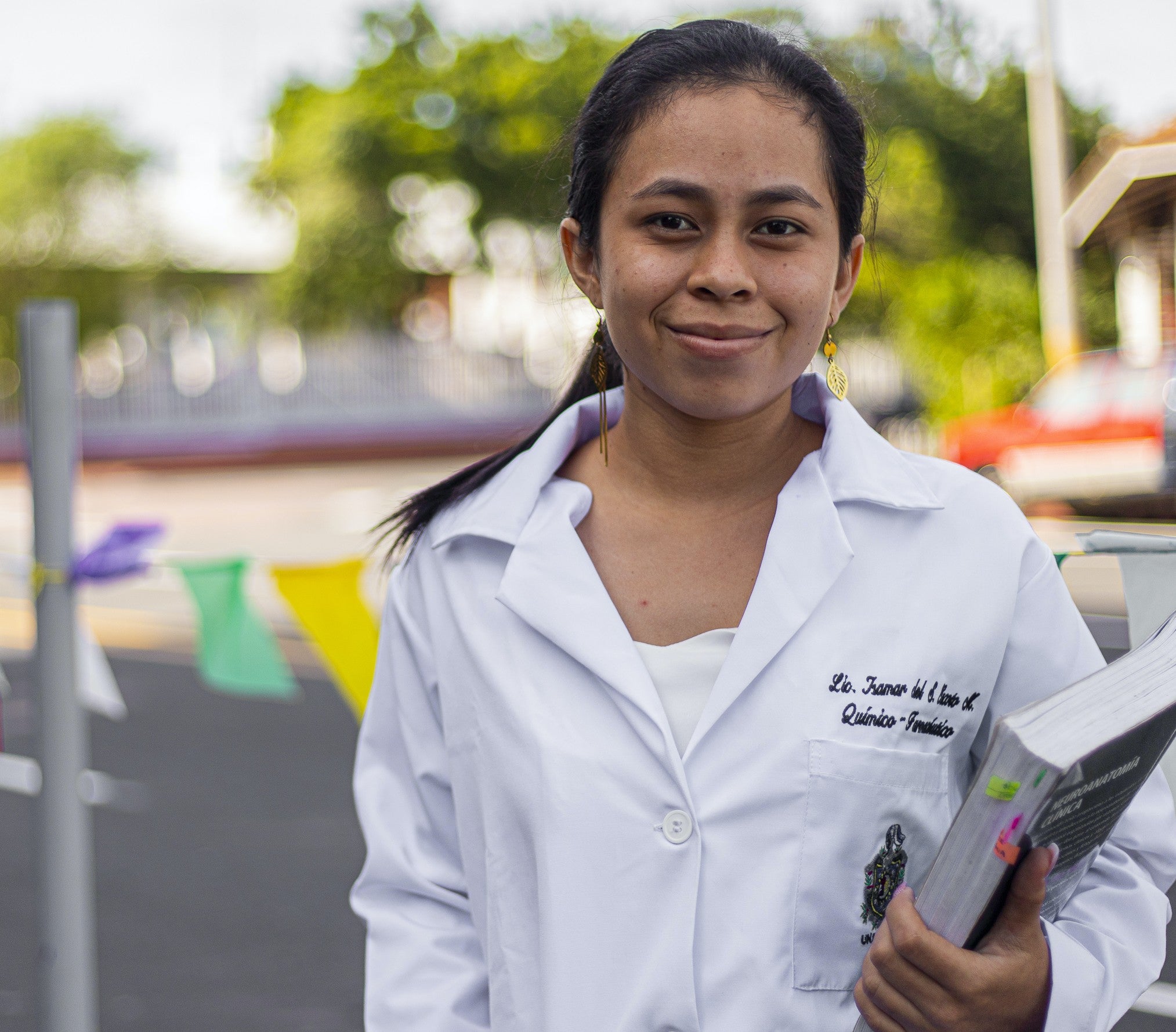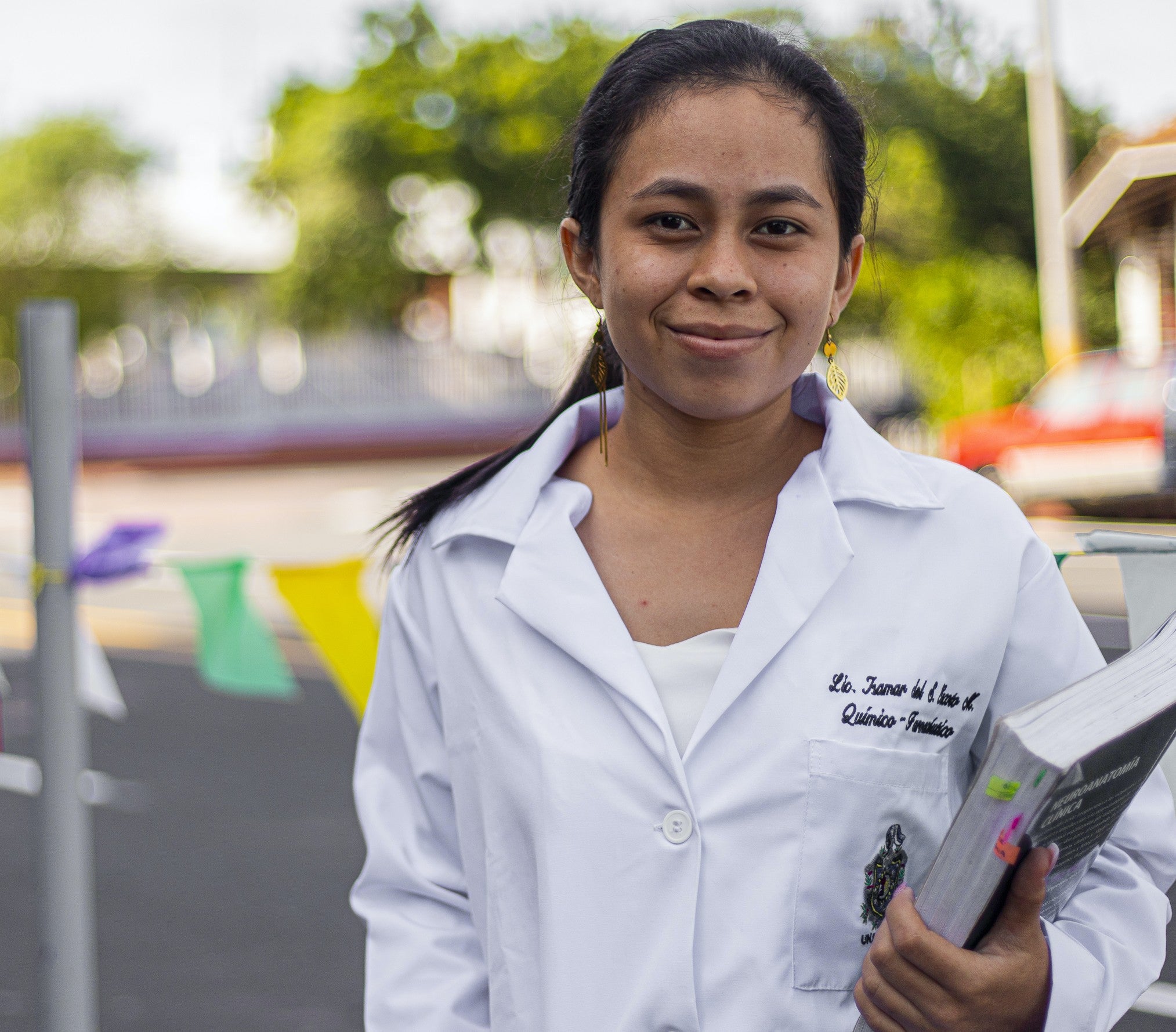Day 20
Half an hour of study for a young woman in Nicaragua
 Empowerment through education
Empowerment through education


Female students as bearers of hope

need
Access to higher education for disadvantaged young women from rural areas of Nicaragua.
activity
Young women receive a full scholarship and, if necessary, secure housing so that they can complete a university degree.
Measurable performance
Number of hours of study for marginalized women from rural areas of Nicaragua.
Result
Disadvantaged women study at a university and can further develop their knowledge and skills there.
Systemically relevant impact
More women in rural areas are working in skilled jobs. They are role models and knowledge carriers for their village communities.
background


The good deed
AboutNicaragua
Managua
Capital city
6 624 554
Population

1,905.3
Gross domestic product
per capita per year

Rank 128 of 189
Human Development Index
(Human Development Index)




